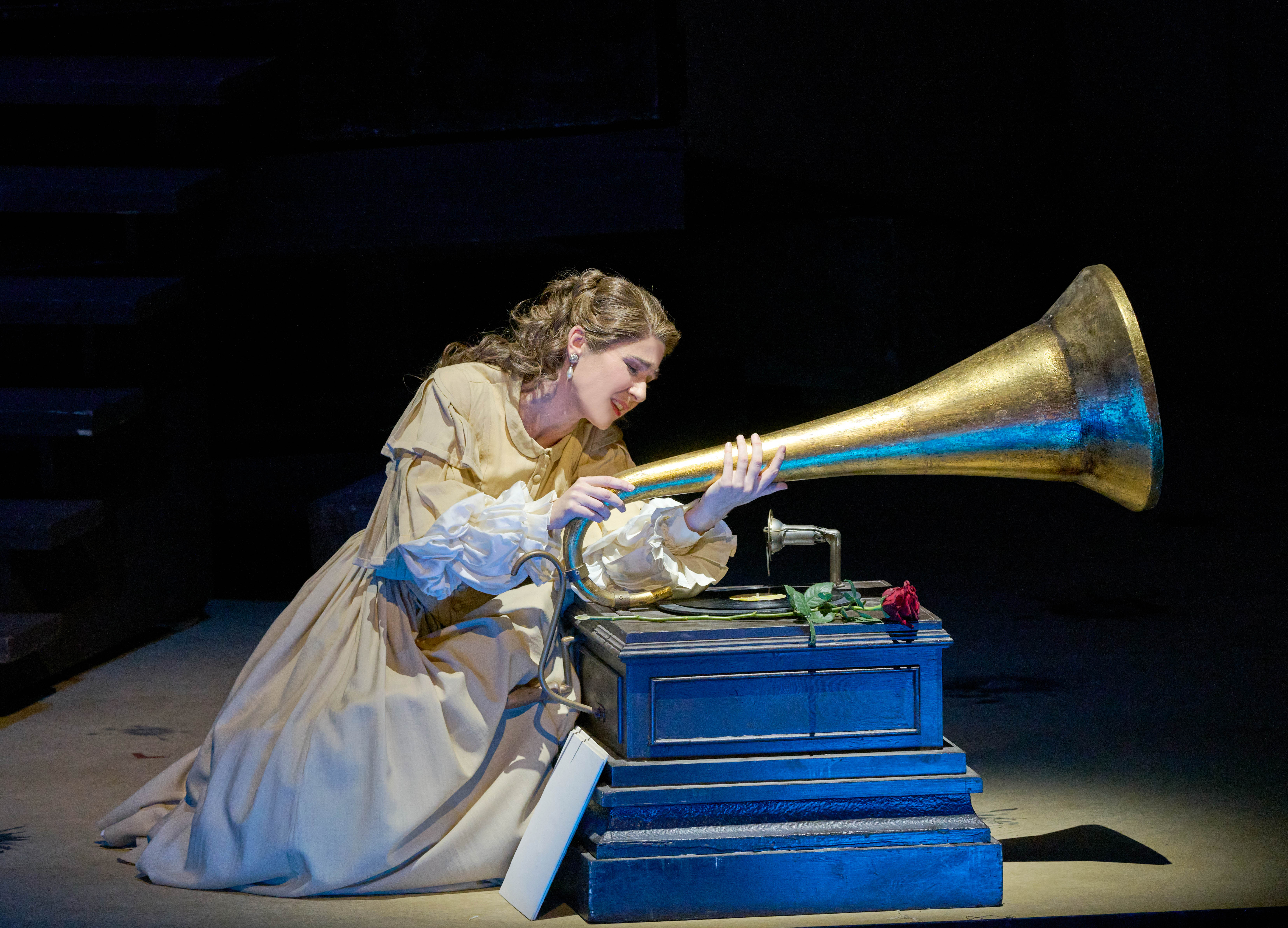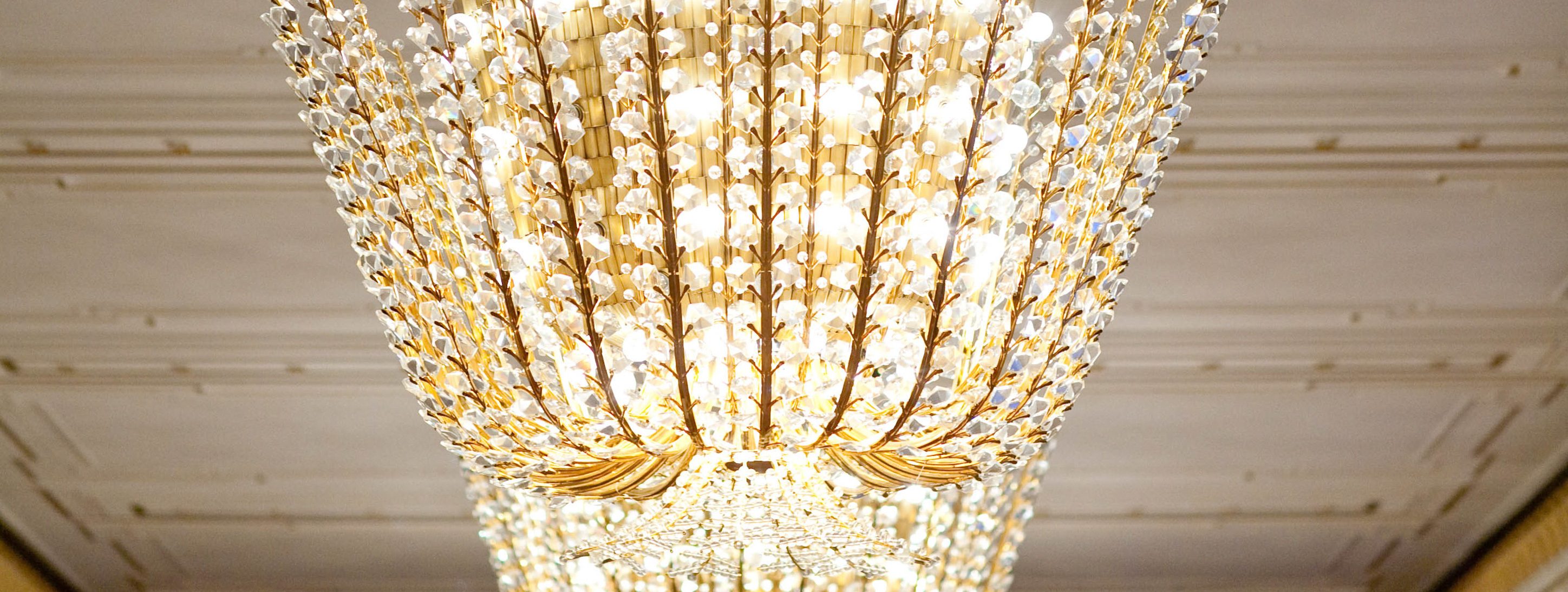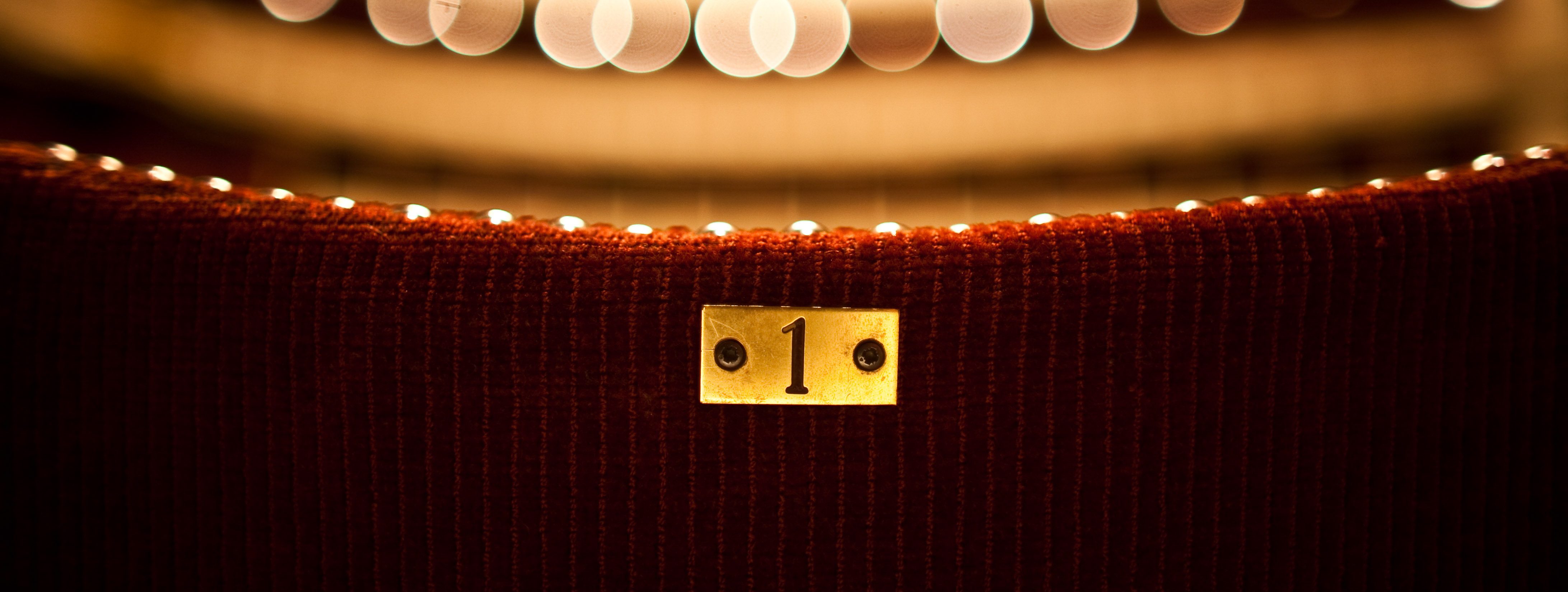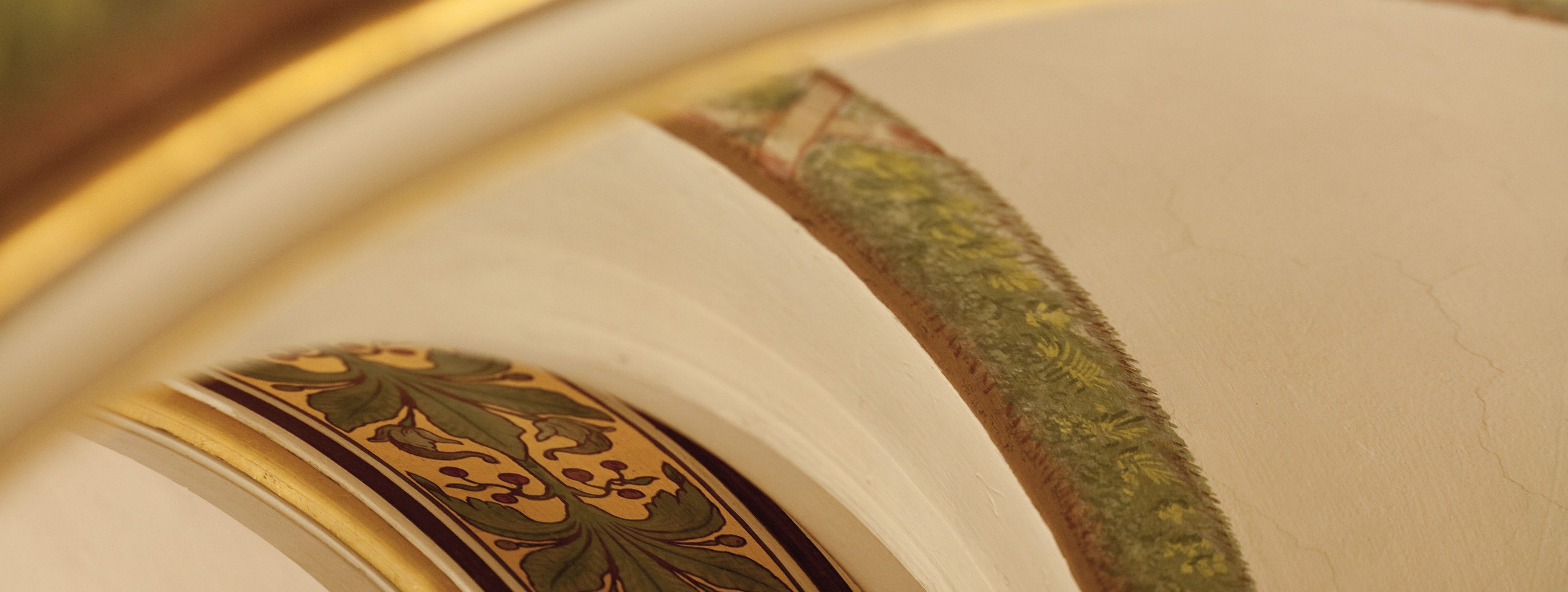
Short Summary
Guided by his muse and beset by a demonic adversary,
hoffmann must struggle his way from one unhappy love affair to the next until he is forced to realize that, as an artist, happiness can only be found in the creative act.
Les Contes
d'Hoffmann
Storyline

Hoffmann's muse appears and swears that she wants to protect him from the dangers of love. She will transform herself into Nicklausse, a young student who is to accompany Hoffmann. Councillor Lindorf intercepts Andrès, the emissary of the beautiful opera singer Stella, who is performing in Don Giovanni that evening. Lindorf bribes Andrès to leave him a letter from Stella addressed to Hoffmann. The letter is a declaration of love to the poet and also contains the key to her dressing room. The old but powerful Lindorf intends to wrest his lover away from Hoffmann that evening.

The waiters are already preparing the tables in Luther's wine bar. Boisterous students call for wine, insult Luther, drink to Stella and wait impatiently for Hoffmann. Hoffmann appears with Nicklausse. He appears tormented, gloomy, melancholy, but the students urge him to sing the merry song of the dwarf Little Zack. As he sings, his thoughts drift off and he suddenly describes a beautiful woman. The students bring him back to reality. The waiters light the punch on fire.
Hoffmann catches sight of Lindorf and recognizes him as his rival and eternal adversary in happiness and love. The students are gripped by curiosity and want to hear the name of his lover from Hoffmann. There are three, he replies: the girl Olympia, the artist Antonia and the courtesan Giulietta. The students decide not to return to the opera performance, but to smoke their pipes and listen to Hoffmann's stories about his three lovers.
The passionate physicist and eccentric inventor Spalanzani has constructed a perfect automaton with such human features that he passes the doll off as his daughter Olympia.

Tonight he will introduce Olympia to society. He is counting on his latest creation to help him recover the 500 ducats he lost when his banker Elias went bankrupt. The first guest arrives early: it is Spalanzani's pupil Hoffmann, who admires Olympia from afar. Hoffmann remains alone with her for a moment, and one look is enough to make him fall in love with Olympia. Nicklausse warns him against falling in love with a doll with enamel eyes. Does he have a premonition? Coppélius enters and introduces himself as Spalanzani's friend.

However, he actually wants to reclaim the eyes he made for Olympia if Spalanzani cannot pay him. Before that, Coppélius tries to talk Hoffmann into his strange inventions - barometers, hygrometers and beautiful eyes. Nicklausse is suspicious, but Hoffmann eagerly acquires a pair of magic glasses through which he sees Olympia as a transfigured dream image. Coppélius demands his share of the profits from Spalanzani, but the latter sends him away with a bad check made out to the bankrupt Elias.

The guests who have arrived marvel at the lovely Olympia, who performs an aria accompanied by Cochenille on the harp. Her exquisite singing is occasionally interrupted by strange mechanical noises, but Hoffmann, dazzled by his magic glasses, listens devotedly. In a tête-à-tête with Olympia, he declares his love for her and believes himself to be in love again. But she withdraws from the first embrace. Nicklausse bursts in and reports alarming rumors about Olympia that are doing the rounds in society. Hoffmann rejects the warning and runs after his lover.
Coppélius swears revenge against Spalanzani, who tried to cheat him with a worthless check. The guests return. Hoffmann dances a waltz with Olympia, who increases her steps to breakneck speed. Hoffmann falls and breaks his magic glasses. Olympia has to be led out. Coppélius is already waiting and smashes the doll. Hoffmann realizes his delusion: he has fallen in love with an automaton.
Antonia Crespel dreams of becoming as famous a diva as her late mother was. But she doesn't know that she has inherited not only her mother's magnificent voice, but also her mother's fatal illness. To save Antonia's life, her father must keep all excitement and exertion away from her. He forbids her to sing and also any contact with her bridegroom Hoffmann. Crespel instructs the old deaf servant Frantz not to allow anyone in. Frantz likes to be alone, where he sings his anger away.

Hoffmann rushes in, looking for Antonia, who rushes over when she hears his voice. The two declare their love for each other and exchange vows. Hoffmann asks her for a song. She is happy to oblige, but an attack of weakness makes it difficult for her to finish the song. When Crespel returns, Antonia runs away while Hoffmann hides. Frantz calls in Doctor Miracle, the family doctor. Crespel insults the doctor and calls him a murderer who will destroy his daughter, just as he did her mother. Miracle demonstrates his hypnotic powers. Hoffmann realizes that Antonia is in danger: if she sings, she will die.

At his insistence, Antonia reluctantly promises to give up her singing and her dream of fame. Miracle returns and urges Antonia not to sacrifice her talent for bourgeois happiness. At first she resists the temptation, but when Miracle lets the portrait of her mother speak, she can no longer hold back - she has to sing. Spurred on by the demonic doctor, Antonia sings herself to death. Crespel desperately throws himself at Hoffmann, but Nicklausse holds the grief-stricken father back. It is too late: the devil has won again, with the help of his servant Frantz.

Hoffmann's lovesickness has turned him into a cynic who prefers drinking and gambling to women. Schlémil and Pittichinaccio vie for Giulietta's affections. Nicklausse promises Hoffmann that he will drag him away by force at the first sign of infatuation. Hoffmann scoffs: Only a fool loses his heart to a courtesan. After the two friends leave, Dapertutto appears and swears that Hoffmann will lose his heart - to the enchanting Giulietta. A woman sells her soul for a glittering piece of jewelry, says Dapertutto and entices Giulietta with a diamond.

In order to get him, Giulietta has to promise him that she will give Hoffmann his reflection - just as she turned Schlémil's head to get his shadow. Giulietta uses all her skills to conquer Hoffmann. She is touched by his honesty - for a moment it seems as if she wants to save him. But Hoffmann falls under her spell and offers her not only his reflection, but also his life and soul. Schlémil finds the two of them in intimate togetherness and is gripped by raging jealousy.

Nicklausse tries in vain to persuade Hoffmann to leave. He is distraught at the loss of his reflection, but at the same time feels bound to his beloved.
The gondolas carry Giulietta away. Hoffmann demands the key to her chamber from Schlémil. Dapertutto lends Hoffmann his sword for the duel between the two. Schlémil is mortally wounded. Hoffmann takes the key, but he searches for Giulietta in vain: given the choice, she has chosen love over diamonds.

When Nicklausse thinks that Stella is the embodiment of his three lovers, Hoffmann attacks his mentor in a drunken rage. By the time Stella arrives, Hoffmann has already drunk himself senseless. Andrès, who is now in Lindorf's service, introduces Stella to the town councillor, who triumphantly leads her to his carriage. The muse returns to her true form. She promises to alleviate Hoffmann's suffering and explains to him that love in life is only an illusion: true love only exists in art. The whole ensemble joins in the finale: "On est grand par l'amour et plus grand par les pleurs." The suffering poet returns to his desk to continue his search in art
Offenbach wrote his last stage work Les Contes d'Hoffmann in the truest sense of the word in a race against his own death. The stigma of the uncanny, which was attached to the work as a result, became even more intense after the Vienna Ringtheater fell victim to a fire during a performance of this opera. In the meantime, this eeriness has given way to the charm of the enigmatic and mysterious. In any case, the piece has been immensely popular for a long time.











